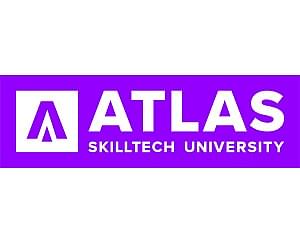Introduction about Ph.D. in Immunology
A Ph.D. in Immunology is an advanced academic and research degree focused on understanding
the immune system, its functions, mechanisms, and its role in health and
disease. Immunology is a critical field of study that intersects with various
disciplines such as microbiology, biochemistry, molecular biology, and
medicine. This program prepares students for careers in academic research,
biotechnology, pharmaceuticals, and clinical settings by providing in-depth
knowledge and research experience in immunological sciences.
What is admission process for Ph.D. in Immunology ?
The admission Ph.D. in Immunology generally involves several key steps. While
the specifics can vary by institution, the following outline provides a typical
process:
1. Research Programs and Institutions
Identify Suitable
Programs: Research
universities and institutions that offer Ph.D. programs in Immunology. Consider
factors such as faculty expertise, research facilities, funding opportunities,
and program reputation.
Contact Potential
Advisors: Reach out to
faculty members whose research aligns with your interests to discuss potential
opportunities and establish a connection.
2. Check Eligibility Requirements
Educational
Background: Typically,
applicants should have a relevant master’s degree (e.g., in immunology,
biology, biochemistry, or a related field). Exceptional candidates with a
bachelor’s degree and substantial research experience may also be considered.
GPA and Academic
Performance: Maintain a
strong academic record, usually with a minimum GPA requirement (often around
3.0 to 3.5 on a 4.0 scale).
3. Prepare Application Materials
Transcripts: Obtain official transcripts from all
post-secondary institutions attended.
Standardized Test
Scores: Some programs may
require GRE scores. International applicants might need to submit TOEFL or
IELTS scores to demonstrate English proficiency.
Letters of
Recommendation: Arrange for
2-3 letters of recommendation from professors or professionals who can attest
to your academic and research abilities.
Statement of
Purpose: Write a compelling
statement of purpose detailing your research interests, career goals, and
reasons for pursuing a Ph.D. in Immunology. Highlight relevant research
experiences and explain why you are a good fit for the program.
Curriculum Vitae
(CV): Include a detailed CV
outlining your academic achievements, research experience, publications,
presentations, and any relevant work experience.
Research Proposal: Some programs may require a brief research
proposal outlining a potential project you would like to pursue during your
Ph.D.
4. Submit the Application
Complete
Application Form: Fill out
the online application form provided by the institution.
Application Fee: Pay the application fee, if required.
Submit Documents: Ensure all required documents are
submitted by the application deadline.
5. Interview Process
Initial Screening: Applications are reviewed by the
admissions committee. Shortlisted candidates may be invited for an interview.
Interview: Prepare for an interview with faculty
members, which may be conducted in person, over the phone, or via video
conferencing. Be ready to discuss your research interests, past experiences,
and why you want to join their program.
6. Admission Decision
Notification: Successful candidates will receive an
offer of admission.
Acceptance: Review the offer details, including
funding packages, and accept the offer if you decide to enroll.
7. Enrollment
Complete Enrollment
Steps: Fulfill any
additional requirements such as submitting final transcripts, attending
orientation sessions, and registering for courses.
Tips for a Successful Application
Start Early: Begin the application process well in
advance to gather all necessary documents and meet deadlines.
Tailor Your
Application: Customize your
statement of purpose and research proposal to align with the specific program
and faculty you are applying to.
Highlight Research
Experience: Emphasize your
research projects, publications, and presentations in your application
materials.
Seek Feedback: Have your application materials reviewed
by mentors or colleagues to ensure clarity and completeness.
By following these
steps and thoroughly preparing your application, you can increase your chances
of being admitted to a Ph.D. program in Immunology at top 5 college in India.
What is eligibility criteria for Ph.D. in
Immunology?
The eligibility criteria Ph.D. in Immunology generally include several key components.
While specific requirements can vary by institution, the following outlines the
typical criteria:
1. Educational Background
Master’s Degree: Applicants usually need a master's degree
in immunology, biology, biochemistry, molecular biology, or a closely related
field.
Bachelor’s Degree: In some cases, exceptional candidates with
a bachelor’s degree and substantial research experience may be admitted
directly into the Ph.D. program.
2. Academic Performance
GPA Requirements: A strong academic record is typically
required, with a minimum GPA often around 3.0 to 3.5 on a 4.0 scale.
Relevant Coursework: Completion of relevant coursework in
subjects such as immunology, molecular biology, biochemistry, genetics, and
microbiology.
3. Research Experience
Previous Research: Significant research experience is highly
valued. This can include undergraduate or master’s research projects,
internships, or work experience in a research setting.
Publications and
Presentations: Publications
in scientific journals and presentations at conferences can strengthen the
application.
4. Standardized Test Scores
GRE Scores: Some programs require GRE (Graduate Record
Examination) scores, though this requirement is becoming less common. It is
important to check with the specific institution.
English Proficiency: International students whose first
language is not English may need to demonstrate proficiency through tests such
as TOEFL or IELTS. Minimum score requirements vary by institution.
5. Letters of Recommendation
References: Typically, 2-3 letters of recommendation
are required from academic or professional references who can attest to the
applicant’s research abilities, academic performance, and potential for success
in a Ph.D. program.
6. Statement of Purpose
Personal Statement: A statement of purpose outlining the
applicant’s research interests, career goals, and reasons for pursuing a Ph.D.
in Immunology. This document should highlight relevant experiences and explain
why the applicant is a good fit for the program.
7. Research Proposal
Proposed Research: Some programs may ask for a preliminary
research proposal outlining the applicant’s intended research area and
potential projects.
8. Interview
Interview Process: After an initial review of applications,
shortlisted candidates may be invited for an interview with the admissions
committee or potential advisors. The interview assesses the candidate’s fit
with the program and their research interests.
9. Additional Requirements
Background Check: Some institutions may require a background
check as part of the admissions process.
Technical Skills: Proficiency in laboratory techniques and
methodologies relevant to immunology can be advantageous.
What is syllabus for Ph.D. in Immunology ?
The syllabus of Ph.D. in Immunology is designed to provide a comprehensive understanding of the
immune system, advanced research skills, and specialized knowledge in various
subfields of immunology. While the specific syllabus can vary between institutions,
the following outline represents a typical structure of coursework, research,
and professional development components in a Ph.D. in Immunology program:
Core Courses
Advanced Immunology
In-depth study of innate and adaptive immunity
Molecular and
Cellular Immunology
Signal transduction
in immune cells
Molecular
mechanisms of immune responses
Cellular
interactions and communication in the immune system
Immunogenetics
Genetic basis of
immune system function
Major
histocompatibility complex (MHC) and antigen processing
Genetic
susceptibility to immune-mediated diseases
Immunopathology
Mechanisms of
autoimmune diseases
Hypersensitivity
reactions
Immunodeficiency
disorders
Infectious Disease
Immunology
Host-pathogen
interactions
Immune responses to
bacterial, viral, fungal, and parasitic infections
Vaccine development
and immunization strategies
Tumor Immunology
Immune surveillance
and cancer
Tumor
microenvironment and immune evasion
Immunotherapy for
cancer treatment
Elective Courses
Clinical Immunology
Diagnostic
immunology
Clinical management
of immune-mediated diseases
Immunological
techniques in clinical practice
Neuroimmunology
Interactions
between the nervous and immune systems
Immune responses in
neurological diseases
Neuroinflammation
and its regulation
Environmental
Immunology
Impact of
environmental factors on the immune system
Allergens and
allergic diseases
Immune responses to
environmental pollutants
Transplant
Immunology
Immune responses to organ and tissue transplants
Research Methodology and Techniques
Laboratory Techniques in Immunology
ELISA, Western
blotting, and other immunoassays
Experimental Design
and Data Analysis
Designing robust immunological experiments
Scientific Writing
and Communication
Writing research proposals and scientific papers
Research Seminars and Journal Clubs
Research Seminars: Regular presentations by faculty, guest
speakers, and students on current topics in immunology.
Journal Clubs: Critical review and discussion of recent
scientific literature in immunology.
Dissertation Research
Research Proposal
Development
Identifying a research question or hypothesis
Independent
Research
Conducting original
research under the guidance of a faculty advisor
Dissertation
Writing and Defense
Writing a
comprehensive dissertation based on the research conducted
Professional Development
Ethics in Research
Ethical
considerations in immunological research
Career Development
Networking and professional opportunities in immunology
This was the process for admission , syllabus at top 10 college in India












